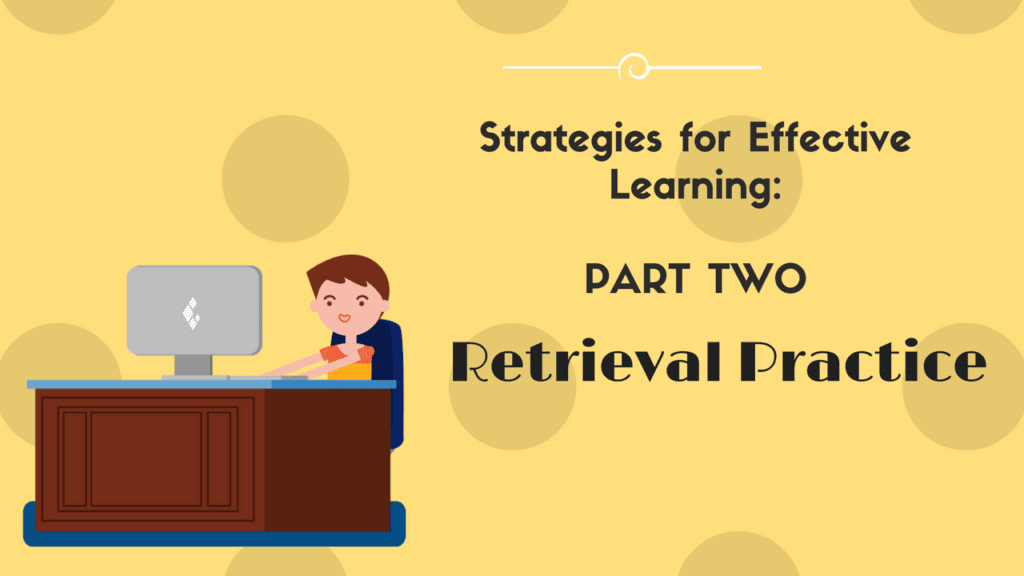How To Get Information “Out” – Retrieval Practice
Written by Preet Mankad
Published on February 20, 2017
Last week we talked about the importance of Spaced Out Practice. This week we’ll discuss another technique that has shown to improve memory and learning: Retrieval Practice. Lots of learning exercises, like lectures, reading assignments, and watching videos are aimed at getting information “in”. However, retrieval practice aims at getting the information “out”. Retrieval practice can be asking the student to name a concept, recite a definition or answer a question. Quizzes are often designed as retrieval practice. One of the main things that makes retrieval practice different from other types of practice, like re-reading or reviewing–and one of the things that make it work– is that retrieval practice is difficult!
Cognitive Learning Scientists, Megan Smith, and Yana Weinstein highlight the benefits of quizzes here, emphasizing that quizzes facilitate the retrieval of information previously learned.
We all have limited time, so we want to use the techniques that will work the best in the shortest time possible. In a study conducted by psychologist Pooja Agarwal and her colleagues, children with different working memory capacities were given different ways to study. Here is what they found:
- Retrieval practice yielded better results than restudying the material – for example, by reviewing notes.
- When tested after two days, children with lower working memory capacities actually benefited more from using retrieval techniques than did their peers with higher working memory capacities.
 If you have been told that your child has weak working memory skills, this information is especially important because it suggests a science-backed way you can help your child! First, provide some Spaced Out Practice. Then, use short, focused retrieval exercises to strengthen the information in memory.
If you have been told that your child has weak working memory skills, this information is especially important because it suggests a science-backed way you can help your child! First, provide some Spaced Out Practice. Then, use short, focused retrieval exercises to strengthen the information in memory.
Here are some examples of retrieval exercises used for daily practice in the Lexercise Structured Literacy Curriculum©:
For beginning readers and spellers:
- Seeing letters and saying the sound associated with each one;
- Giving the definitions of the two types of speech sounds: vowels and consonants;
- Spelling the /k/ sound correctly (with <c>, <k>, <-ck>, etc.);
- Using the correct movement pathway for writing lowercase letters.
For more advanced readers and spellers:
- Explaining why the vowels in the 2nd syllable of words like tablet and metal sound like “uh”;
- Naming the term for 2 letters that spell 1 sound (e.g., the 1st sound in shell );
- Naming the term for 2 consonant sounds next to each other in the same syllable (e.g., the first 2 sounds in stem).
- Spelling words correctly with suffixes (e.g., tap→ tapping).
Retrieval practice can be difficult so it is important to be patient with your child, provide lots of encouragement and support and teach the value of persistence! Retrieval practice in conjunction with spaced-out practice supports learning and develops expertise.
 Lexercise Structured Literacy Teletherapy is designed with a little practice every day. Here is a blog series with information about how well-designed practice supports memory and learning.
Lexercise Structured Literacy Teletherapy is designed with a little practice every day. Here is a blog series with information about how well-designed practice supports memory and learning.
You can learn more about Lexercise Structured Literacy Teletherapy and even schedule a free 15-minute consultation with a Lexercise dyslexia therapist here.
Improve Your Child’s Reading
Learn more about Lexercise today.
Schedule a FREE
15-minute consultation


